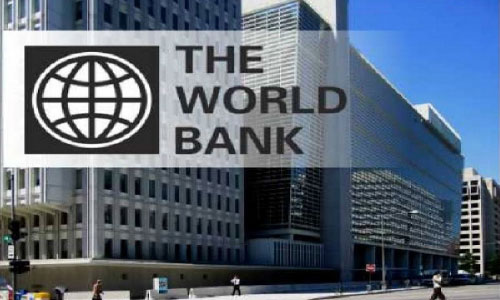KABUL - The World Bank has started consulting stakeholders on identifying economic initiatives in support of peace in Afghanistan once a political settlement is reached with the Taliban.
In a statement, the World Bank said it was seeking broader input from all stakeholders and has made public several draft documents on its website to facilitate the process.
At the 2018 Geneva Ministerial Conference on Afghanistan, the World Bank was tasked to support planning for post-settlement economic development projects and programming in light of discussions.
Henry Kerali, the World Bank country director, said the consultations would serve several purposes.
“First, we want to show that a peace agreement can bring substantial economic benefits to all Afghans and is in the interest of all parties involved in the ongoing conflict” Kerali said.
“Second, we want to identify potential principles and themes to guide programming decisions following a settlement.
“Finally, we want to provide some concrete ideas about the kind of programs that could be scaled up or initiated to maintain peace and realize new economic opportunities in Afghanistan.”
He noted the consultations come at a critical time for Afghanistan. "The World Bank is merely providing technical analysis and is not involved in any negotiations; our priority is to plan for the future of Afghanistan.
“Peace prospects can improve if the right economic conditions are in place and create job opportunities for those who might otherwise take up arms.” Kerali also noted that public input would be vital to ensure effective planning.
The World Bank is inviting comment on three documents published on its Afghanistan website:
A two-page consultation note;
A short consultation presentation; and
A full technical report.
Consultations are expected to continue until a peace agreement is achieved and new programming decisions are made.
The public was asked to share comments and questions throughout the process via email or through comments on the relevant website. (Pajhwok)
Home » Afghanistan » In Support of Peace, WB Consulting Stakeholders
In Support of Peace, WB Consulting Stakeholders

